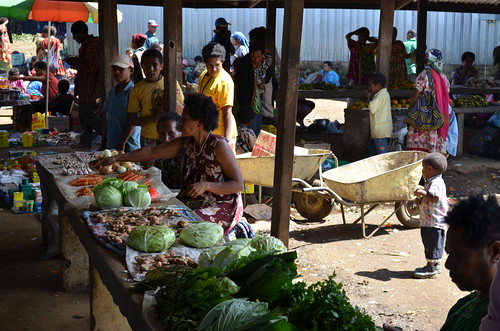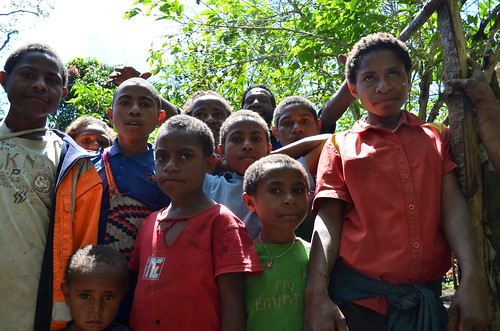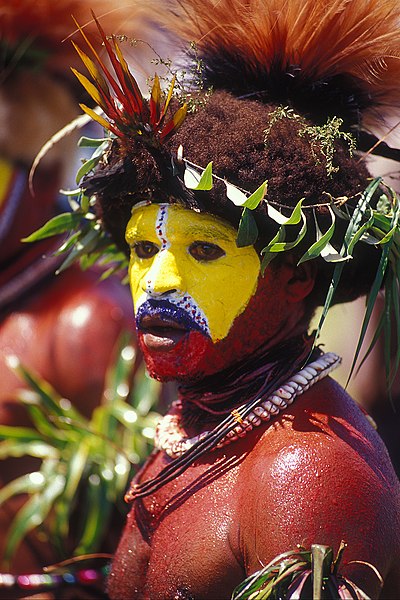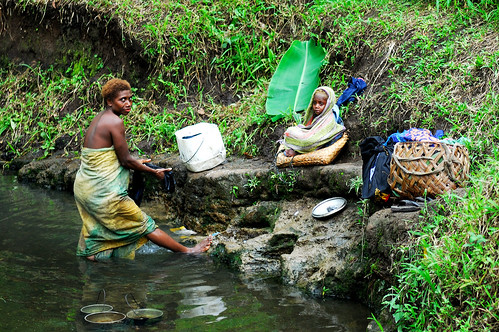Difference between revisions of "Adopting from Papua New Guinea"
(→After Adoption) |
m (→SOURCE) |
||
| (12 intermediate revisions by 2 users not shown) | |||
| Line 1: | Line 1: | ||
| − | {{#eimage:https://www.cia.gov/library/publications/the-world-factbook/graphics/flags/large/pp-lgflag.gif|410x579px|thumb|'''The official flag | + | {{#eimage:https://www.cia.gov/library/publications/the-world-factbook/graphics/flags/large/pp-lgflag.gif|410x579px|thumb|'''The official flag.'''<BR/>Source: cia.gov.}} |
| − | {{#eimage:https://www.cia.gov/library/publications/the-world-factbook/graphics/maps/pp-map.gif|410x579px|thumb|'''Map | + | {{#eimage:https://www.cia.gov/library/publications/the-world-factbook/graphics/maps/pp-map.gif|410x579px|thumb|'''Map.'''<BR/>Source: cia.gov.}} |
| − | {{#eimage:https://www.cia.gov/library/publications/the-world-factbook/graphics/locator/eas/pp_large_locator.gif|410x579px|thumb|'''Map | + | {{#eimage:https://www.cia.gov/library/publications/the-world-factbook/graphics/locator/eas/pp_large_locator.gif|410x579px|thumb|'''Map.'''<BR/>Source: cia.gov.}} |
| − | {{#eimage:http://upload.wikimedia.org/wikipedia/commons/thumb/f/fe/Emblem_of_Papua_New_Guinea.svg/560px-Emblem_of_Papua_New_Guinea.svg.png|410x579px|thumb|''' | + | {{#eimage:http://upload.wikimedia.org/wikipedia/commons/thumb/f/fe/Emblem_of_Papua_New_Guinea.svg/560px-Emblem_of_Papua_New_Guinea.svg.png|410x579px|thumb|''''''<BR/>Source: Wikipedia.org.}} |
| − | {{#eimage:https://farm7.staticflickr.com/6009/5987172228_953a56c2f1.jpg|410x579px|thumb|''' | + | {{#eimage:https://farm7.staticflickr.com/6009/5987172228_953a56c2f1.jpg|410x579px|thumb|''''''<BR/>Source: flickr.com.}} |
| − | {{#eimage:http://upload.wikimedia.org/wikipedia/commons/thumb/0/0d/Port_Moresby_parliament_building_front%2C_by_Steve_Shattuck.jpg/398px-Port_Moresby_parliament_building_front%2C_by_Steve_Shattuck.jpg|410x579px|thumb|'''Main entrance of the parliament building in Port Moresby | + | {{#eimage:http://upload.wikimedia.org/wikipedia/commons/thumb/0/0d/Port_Moresby_parliament_building_front%2C_by_Steve_Shattuck.jpg/398px-Port_Moresby_parliament_building_front%2C_by_Steve_Shattuck.jpg|410x579px|thumb|'''Main entrance of the parliament building in Port Moresby.'''<BR/>Source: Wikipedia.org.}} |
| − | {{#eimage:https://farm7.staticflickr.com/6146/5987183212_197b4a0109.jpg|410x579px|thumb|''' | + | {{#eimage:https://farm7.staticflickr.com/6146/5987183212_197b4a0109.jpg|410x579px|thumb|''''''<BR/>Source: flickr.com.}} |
| − | {{#eimage:http://upload.wikimedia.org/wikipedia/commons/thumb/f/f9/Papua_New_Guinea_%285986599443%29.jpg/800px-Papua_New_Guinea_%285986599443%29.jpg|410x579px|thumb|'''The highlands | + | {{#eimage:http://upload.wikimedia.org/wikipedia/commons/thumb/f/f9/Papua_New_Guinea_%285986599443%29.jpg/800px-Papua_New_Guinea_%285986599443%29.jpg|410x579px|thumb|'''The highlands.'''<BR/>Source: Wikipedia.org.}} |
| − | {{#eimage:http://upload.wikimedia.org/wikipedia/commons/thumb/7/7f/Tarvurvur.jpg/800px-Tarvurvur.jpg|410x579px|thumb|''' Mount Tavurvur, a part of the Rabaul caldera volcano | + | {{#eimage:http://upload.wikimedia.org/wikipedia/commons/thumb/7/7f/Tarvurvur.jpg/800px-Tarvurvur.jpg|410x579px|thumb|''' Mount Tavurvur, a part of the Rabaul caldera volcano.'''<BR/>Source: Wikipedia.org.}} |
| − | {{#eimage:http://upload.wikimedia.org/wikipedia/commons/thumb/8/8d/Huli_wigman.jpg/400px-Huli_wigman.jpg|410x579px|thumb|'''Huli Wigman from the Southern Highlands | + | {{#eimage:http://upload.wikimedia.org/wikipedia/commons/thumb/8/8d/Huli_wigman.jpg/400px-Huli_wigman.jpg|410x579px|thumb|'''Huli Wigman from the Southern Highlands.'''<BR/>Source: Wikipedia.org.}} |
| − | {{#eimage:https://farm3.staticflickr.com/2409/2265841409_ebdd3c98e4.jpg|410x579px|thumb|'''Washing day | + | {{#eimage:https://farm3.staticflickr.com/2409/2265841409_ebdd3c98e4.jpg|410x579px|thumb|'''Washing day.'''<BR/>Source: flickr.com.}} |
| + | |||
| − | + | '''Notice: As of July 14, 2014, all individuals and agencies facilitating [[international]] adoptions must be in compliance with the Intercountry [[Universal Accreditation Act]].''' | |
| + | The information contained on this website is for educational purposes only and is not intended to be a substitute for professional legal advice. Always seek the advice of a licensed and qualified professional. While the content of this website is frequently updated, information changes rapidly and therefore, some information may be out of date, and/or contain inaccuracies, omissions or typographical errors. | ||
| − | |||
| + | =About Papua New Guinea= | ||
| − | + | The eastern half of the island of New [[Guinea]] - second largest in the world - was divided between [[Germany]] (north) and the UK (south) in 1885. The latter area was transferred to [[Australia]] in 1902, which occupied the northern portion during World War I and continued to administer the combined areas until independence in 1975. A nine-year secessionist revolt on the island of Bougainville ended in 1997 after claiming some 20,000 lives. | |
| − | |||
| − | = | + | =Hague Convention Information= |
| − | = | + | Papua New [[Guinea]] is not party to the Hague Convention on Protection of Children and Co-operation in Respect of Intercountry [[Adoption]] ([http://adoption.state.gov/hague_convention/overview.php Hague Adoption Convention]). Therefore, when the Hague [[Adoption]] Convention entered into force for the United States on April 1, 2008, intercountry [[adoption]] processing for Papua New [[Guinea]] did not change. |
| + | |||
| + | =Who Can Adopt= | ||
| − | + | To bring an [[adopted]] child to United States from Papua New [[Guinea]], you must be found eligible to [[adopt]] by the U.S. Government. The U.S. Government agency responsible for making this determination is the Department of Homeland Security, U.S. Citizenship and Immigration Services (USCIS). [http://adoption.state.gov/adoption_process/who.php Learn more]. To learn more please read about [[Who Can Adopt from Papau New Guinea]]. | |
=Who Can Be Adopted= | =Who Can Be Adopted= | ||
| + | |||
| + | You cannot [[adopt]] a child in Papua New [[Guinea]] unless he or she meets these requirements of Papua New [[Guinea]]. In addition to these requirements, a child must meet the definition of an orphan under U.S. law for you to bring him or her back to the United States. [http://adoption.state.gov/adoption_process/how_to_adopt/childeligibility.php Learn more] about these U.S. requirements. | ||
=How to Adopt= | =How to Adopt= | ||
| + | ==Adoption Authority== | ||
| − | + | '''Papua New [[Guinea]]'s [[Adoption]] Authority''' | |
| − | + | The central authority responsible for adoptions in Papua New [[Guinea]] is the Office of Child Welfare in the Department for Community Development. | |
| − | |||
| − | + | ==The Process== | |
| − | + | The process for adopting a child from Papua New [[Guinea]] generally includes the following steps: | |
| − | + | # Choose an [[Adoption Service Provider]] | |
| + | # Apply to be Found Eligible to [[Adopt]] | ||
| + | # Be Matched with a Child | ||
| + | # [[Adopt]] the Child (or Gain [[Legal Custody]]) in Papua New [[Guinea]] | ||
| + | # Apply for the Child to be Found Eligible for [[Adoption]] | ||
| + | # Bring Your Child Home | ||
| − | + | To learn more about this process please read [[How to Adopt from Papau New Guinea]]. | |
| − | + | =Traveling Abroad= | |
| − | + | '''Applying for Your U.S. Passport''' | |
| + | A valid U.S. passport is required to enter and leave Papua New [[Guinea]]. Only the U.S. Department of State has the authority to grant, issue, or verify U.S. passports. Getting or renewing a passport is easy. To learn more please read about [[Traveling Abroad in Papau New Guinea]]. | ||
| − | |||
| − | |||
| − | |||
=After Adoption= | =After Adoption= | ||
| Line 84: | Line 92: | ||
[http://www.adoptionservices.org/adoption_support_groups_family/index.htm Adoption Services Support Group for Adopting Persons] | [http://www.adoptionservices.org/adoption_support_groups_family/index.htm Adoption Services Support Group for Adopting Persons] | ||
| + | |||
| + | |||
| + | ==Contact Information== | ||
| + | |||
| + | '''U.S. Embassy in Papua New [[Guinea]]''' | ||
| + | |||
| + | U.S. Embassy - Port Moresby | ||
| + | P.O. Box 1492 | ||
| + | Port Moresby, N.C.D. 121 | ||
| + | Papua New [[Guinea]] | ||
| + | Tel: +(675) 321-1455 | ||
| + | Fax: +(675) 320-0637 | ||
| + | E-mail: png@state.gov | ||
| + | Internet: [http://portmoresby.usembassy.gov U.S. Embassy Papua New Guinea] | ||
| + | |||
| + | |||
| + | '''Papua New [[Guinea]]'s [[Adoption]] Authority''' | ||
| + | |||
| + | Office of Child Welfare, | ||
| + | Department for Community Development | ||
| + | Sanbra Haus | ||
| + | P.O. Box 7354 | ||
| + | Boroko, NCD | ||
| + | Papua New [[Guinea]] | ||
| + | Tel: 675-325-9893 | ||
| + | |||
| + | |||
| + | '''Embassy of Papua New [[Guinea]]''' | ||
| + | |||
| + | 1779 [[Massachusetts]] Avenue, NW | ||
| + | Suite 805 | ||
| + | [[Washington]], DC 20036 | ||
| + | Tel: (202) 745-3680 | ||
| + | Fax: (202) 745-3679 | ||
| + | E-mail: info@pngembassy.org | ||
| + | Internet: [http://www.pngembassy.org/ Embassy Papua New Guinea] | ||
| + | |||
| + | |||
| + | '''Office of Children's Issues''' | ||
| + | |||
| + | U.S. Department of State | ||
| + | CA/OCS/CI | ||
| + | SA-17, 9th Floor | ||
| + | [[Washington]], DC 20522-1709 | ||
| + | Tel: 1-888-407-4747 | ||
| + | E-mail: AskCI@state.gov | ||
| + | Internet: [http://adoption.state.gov U.S. Department of State] | ||
| + | |||
| + | |||
| + | '''U.S. Citizenship and Immigration Services (USCIS)''' | ||
| + | |||
| + | For questions about immigration procedures, call the National Customer Service Center (NCSC) | ||
| + | |||
| + | 1-800-375-5283 (TTY 1-800-767-1833) | ||
| Line 89: | Line 151: | ||
==SOURCE== | ==SOURCE== | ||
| − | '''Intercountry [[Adoption]], Bureau of Consular Affairs. U.S. Department of State Country Information''' | + | '''Intercountry [[Adoption]], Bureau of Consular Affairs. U.S. Department of State Country Information''' adoption.state.gov/country_information/country_specific_info.php?country-select=papua_new_guinea |
[[Category: International Adoption]] | [[Category: International Adoption]] | ||
Latest revision as of 02:13, 21 February 2018
Notice: As of July 14, 2014, all individuals and agencies facilitating international adoptions must be in compliance with the Intercountry Universal Accreditation Act.
The information contained on this website is for educational purposes only and is not intended to be a substitute for professional legal advice. Always seek the advice of a licensed and qualified professional. While the content of this website is frequently updated, information changes rapidly and therefore, some information may be out of date, and/or contain inaccuracies, omissions or typographical errors.
Contents
About Papua New Guinea
The eastern half of the island of New Guinea - second largest in the world - was divided between Germany (north) and the UK (south) in 1885. The latter area was transferred to Australia in 1902, which occupied the northern portion during World War I and continued to administer the combined areas until independence in 1975. A nine-year secessionist revolt on the island of Bougainville ended in 1997 after claiming some 20,000 lives.
Hague Convention Information
Papua New Guinea is not party to the Hague Convention on Protection of Children and Co-operation in Respect of Intercountry Adoption (Hague Adoption Convention). Therefore, when the Hague Adoption Convention entered into force for the United States on April 1, 2008, intercountry adoption processing for Papua New Guinea did not change.
Who Can Adopt
To bring an adopted child to United States from Papua New Guinea, you must be found eligible to adopt by the U.S. Government. The U.S. Government agency responsible for making this determination is the Department of Homeland Security, U.S. Citizenship and Immigration Services (USCIS). Learn more. To learn more please read about Who Can Adopt from Papau New Guinea.
Who Can Be Adopted
You cannot adopt a child in Papua New Guinea unless he or she meets these requirements of Papua New Guinea. In addition to these requirements, a child must meet the definition of an orphan under U.S. law for you to bring him or her back to the United States. Learn more about these U.S. requirements.
How to Adopt
Adoption Authority
Papua New Guinea's Adoption Authority
The central authority responsible for adoptions in Papua New Guinea is the Office of Child Welfare in the Department for Community Development.
The Process
The process for adopting a child from Papua New Guinea generally includes the following steps:
- Choose an Adoption Service Provider
- Apply to be Found Eligible to Adopt
- Be Matched with a Child
- Adopt the Child (or Gain Legal Custody) in Papua New Guinea
- Apply for the Child to be Found Eligible for Adoption
- Bring Your Child Home
To learn more about this process please read How to Adopt from Papau New Guinea.
Traveling Abroad
Applying for Your U.S. Passport
A valid U.S. passport is required to enter and leave Papua New Guinea. Only the U.S. Department of State has the authority to grant, issue, or verify U.S. passports. Getting or renewing a passport is easy. To learn more please read about Traveling Abroad in Papau New Guinea.
After Adoption
What resources are available to assist families after the adoption?
Many adoptive parents find it important to find support after the adoption. Take advantage of all the resources available to your family -- whether it's another adoptive family, a support group, an advocacy organization, or your religious or community services.
Here are some good places to start your support group search:
Child Welfare Information Gateway
North American Council on Adoptable Children
Adoption Services Support Group for Adopting Persons
Contact Information
U.S. Embassy in Papua New Guinea
U.S. Embassy - Port Moresby P.O. Box 1492 Port Moresby, N.C.D. 121 Papua New Guinea Tel: +(675) 321-1455 Fax: +(675) 320-0637 E-mail: png@state.gov Internet: U.S. Embassy Papua New Guinea
Papua New Guinea's Adoption Authority
Office of Child Welfare, Department for Community Development Sanbra Haus P.O. Box 7354 Boroko, NCD Papua New Guinea Tel: 675-325-9893
Embassy of Papua New Guinea
1779 Massachusetts Avenue, NW Suite 805 Washington, DC 20036 Tel: (202) 745-3680 Fax: (202) 745-3679 E-mail: info@pngembassy.org Internet: Embassy Papua New Guinea
Office of Children's Issues
U.S. Department of State CA/OCS/CI SA-17, 9th Floor Washington, DC 20522-1709 Tel: 1-888-407-4747 E-mail: AskCI@state.gov Internet: U.S. Department of State
U.S. Citizenship and Immigration Services (USCIS)
For questions about immigration procedures, call the National Customer Service Center (NCSC)
1-800-375-5283 (TTY 1-800-767-1833)
SOURCE
Intercountry Adoption, Bureau of Consular Affairs. U.S. Department of State Country Information adoption.state.gov/country_information/country_specific_info.php?country-select=papua_new_guinea










